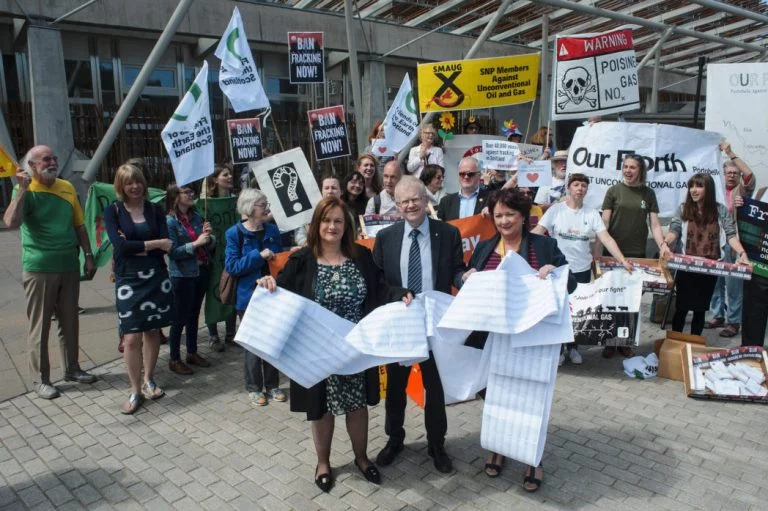A British government study saying shale gas extraction or fracking increases air pollution was hidden for three years and then released four days after ministers approved the controversial US technique in Lancashire, according to the Guardian.
The report comes as the UK faces the threat of legal action from the European Court of Justice over its failure to tackle air pollution in several urban areas.
As shale gas meets opposition across the EU, the UK’s official Air Quality Expert Group (AQEG) report was presented to ministers in 2015 but was published on July 27 with no fanfare.
Shale gas firm Cuadrilla was given the first permit under a new regulatory regime on July 24, the final day of the parliamentary year.
As shale gas exploration with hydraulic fracturing had not occurred in Britain at the time of compiling the report in 2015, the researchers based their conclusions on the US.
Labour environment spokeswoman Sue Hayman said: “The decision to grant a licence to Cuadrilla must urgently be reconsidered.”
Another government study, which said fracking could cause house prices to fall by up to 7 per cent, was also delayed until an important planning decision had been made.
“There’s a pattern emerging, with environmentally unfriendly government announcements being scheduled to preempt worrying reports by experts,” Hayman said.
“The decision on Heathrow’s third runway was also taken days before the Committee on Climate Change reported on the danger of CO2 emissions.”
A Labour administration would ban fracking, she added
The report estimated that 400 fracking wells would increase national emissions of pollution, with nitrogen dioxides rising by 1 to 4 per cent and volatile organic compounds 1 to 3 per cent.
It said: “Impacts on local and regional air quality have the potential to be substantially higher than the national level impacts, as extraction activities are likely to be highly clustered.”
Professor Paul Monks, chairman of the AQEG, said: “The thing that surprised me was you think the main sources of air pollution are going to be coming from the actual process of fracking, but it is as much all the industry – diesel generators, lorries running up and down roads, and all the stuff used to support it.
“If you have any industrial process at a local level you are going to get an impact on air quality.”
It is estimated the UK could eventually have 12,500 fracking wells.
A Department of Environment, Food and Rural Affairs spokesman said: “The government places scientific data and research at the heart of its decision. The AQEG report reviewed data obtained from the US which might not be applicable to UK circumstances and needed thorough consideration. The report was published as soon as our full sign-off procedures had been completed.”
UK shale fields are deeper than those in the US, so more fuel needed to be burned to extract the gas, and Britain already has illegal levels of nitrogen oxides in several areas under EU limits.
But the number and density of the fracking wells is likely to be lower than those found across the Atlantic.
Fracking developments have angered residents in northern England. Picture credit: Flickr
Did you like it? 4.7/5 (26)






